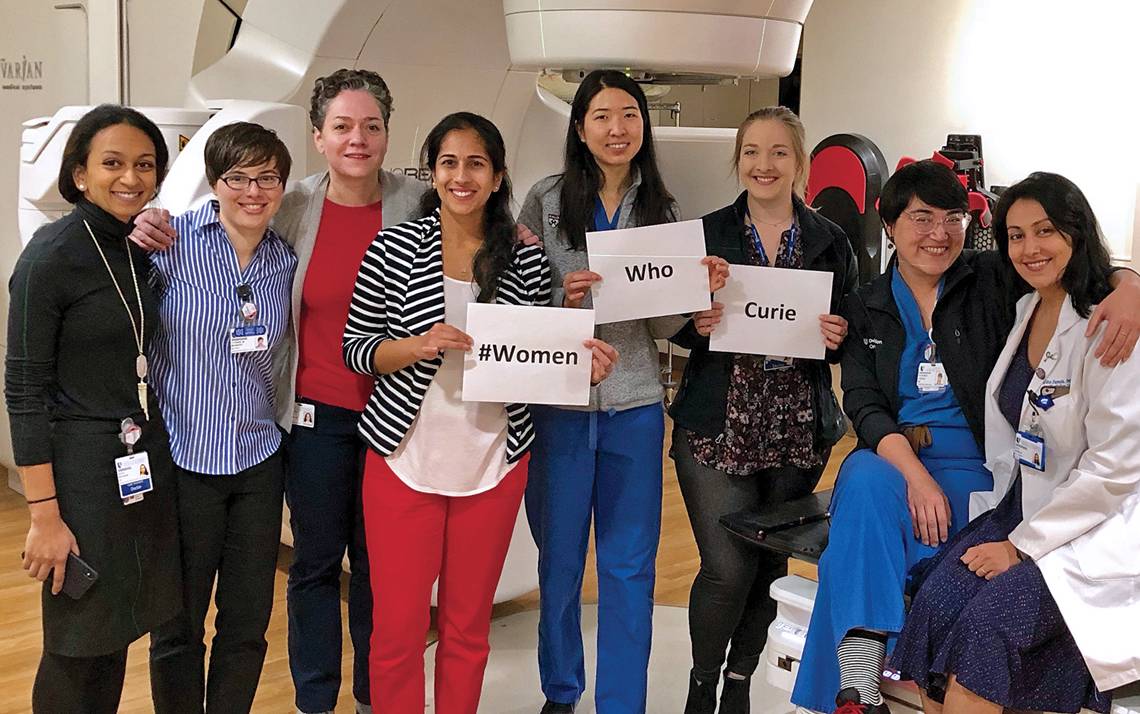Bringing about Change
Women in Radiation Oncology take up the cause of diversity

On November 7 of last year, eight women, all radiation oncologists from Duke, gathered in front of a linear accelerator and snapped a photo destined for Twitter. Three of the women held up signs that read #WomenWhoCurie.
The photo was one of around 700 posted as part of a social media campaign by the Society for Women in Radiation Oncology. The purpose of the #WomenWhoCurie campaign was twofold.
First, it celebrated the birthday of Marie Curie, the Nobel Prize-winning physicist who did pioneering research about radiation. It also served as a fun way to create awareness of women in a discipline where they would like to attract more female colleagues.
“We wanted to highlight the fact that this a great field,” said Bridget Koontz, director for Radiation Oncology at Duke Regional Hospital.
As leaders grapple with a remedy for gender imbalance in the science, technology, engineering and mathematics worlds, similar conversations are being held in medical fields, such as Radiation Oncology, where women remain underrepresented.
According the American Society for Radiation Oncology, among the 20 most-popular training specialties in 2017, Radiation Oncology ranked 17th in the percentage of female applicants, with just 28.2 percent.
This is something that Fumiko Chino, chief resident in Radiation Oncology at Duke, finds puzzling.
She was attracted to the field, which treats cancer with high doses of radiation, for its mix of science and personal patient care. She said its set schedule is also attractive to anyone looking to balance a career and family.
These are points Chino addresses with Duke University School of Medicine students whenever she gets the opportunity to speak with them about her discipline.
“Ultimately, for anyone finding their field, it has to resonate with you,” Chino said. “I think the important thing is that people are aware of ours and see it as an option.”
Have a story idea or news to share? Share it with Working@Duke.